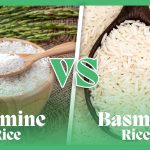Amidst the innumerable nutrient-rich foods, one such nutritional gem often goes unnoticed- black chickpeas.
Beyond its rich flavor and firm texture, this legume harbors an ocean of nutrients waiting to be explored. From its plant-based protein content to its dietary fiber, vitamins, and minerals galore, this notable member of the chickpea family turns every meal into a nutritional orchestra!
Today, we offer the center stage to this hidden gem of an ingredient and reveal its nutritional intricacies to the world.
So, buckle up as we unpeel every layer of black chickpea to unveil its hidden nutritional trove!
What is it?
While you have mostly heard of or consumed white chickpeas, you will be surprised to hear another variety goes by black chickpea or black channa that is as nutritious as the former. They are scientifically known as Cicer Arietinum, while their common names are Bengal gram and Garbanzo beans (Mexican origin).
India is the largest producer of black chickpeas, with 67% of total worldwide productions, while the rest of the producers are Turkey, Pakistan, Australia, Ethiopia, Myanmar, Canada, Mexico, and the US. They are dark brown to black in color, small, dried, and shriveled with rough covering, and have a nutty and firm texture. Black chickpeas are a staple in every household, used in salads, soups, curries, and other side dishes.
Nutritional composition:
Raw chickpeas:
100 grams of raw chickpeas contains 378 kilocalories. They are good sources of macronutrients with 62 g of carbohydrates and 12.2 g of dietary fiber. Black chickpeas are rich in plant proteins (20.4 g), making them suitable for vegetarians and vegans. Most of the fat (6.04 g) in these darkened chickpeas comes from polyunsaturated fats (2.73 g).
Raw black chickpeas are abundant in all essential vitamins and minerals including Vitamin C, Vitamin B-complex, vitamin A, calcium, iron, magnesium, potassium, phosphorus, zinc, manganese, and selenium.

Boiled chickpeas:
Cooking leads to nutrient loss in food, however, chickpeas still have an adequate amount of essential nutrients. 100g of boiled chickpeas provides 164 kilocalories, while 27 g of carbohydrates incorporates 7.6 g of fiber. Boiled chickpeas are a competent source of protein providing 8.8 g. Boiling reduces the fat content of chickpeas to 2.59 g with 1.15 g of polyunsaturated fats.

Boiled chickpeas are rich reservoirs of vitamin C, Vitamin A, Vitamin B-complex, calcium, iron, magnesium, phosphorus, potassium, sodium, zinc, manganese, and selenium.
| Nutrients (100g) | Raw black chickpea | Boiled black chickpea |
|---|---|---|
| Macronutrients | ||
| Energy | 378 kcal | 164 kcal |
| Carbohydrates Fiber Sugar | 62 g 12.2 g 10.7 g | 27 g 7.6 g 4.8 g |
| Proteins | 20.4 g | 8.8 g |
| Fats Saturated fats Monounsaturated fats Polyunsaturated fats | 6.04 g 0.60 g 1.37 g 2.73 g | 2.59 g 0.26 g 0.58 g 1.15 g |
| Micronutrients | ||
| Vitamins | ||
| Vitamin C | 4 mg | 1.3 mg |
| Thiamine (B1) | 0.47 mg | 0.11 mg |
| Riboflavin (B2) | 0.21 mg | 0.06 mg |
| Niacin (B3) | 1.54 mg | 0.52 mg |
| Panthotenic acid (B5) | 1.58 mg | 0.28 mg |
| Vitamin B6 | 0.53 mg | 0.13 mg |
| Folate | 557 mcg | 172 mcg |
| Vitamin A | 67 IU | 27 IU |
| Vitamin D | 0 | 0 |
| Vitamin K | 9 mcg | 4 mcg |
| Vitamin K | 0.82 mcg | 0.35 mcg |
| Minerals | ||
| Calcium | 57 mg | 49 mg |
| Iron | 4.31 mg | 2.89 mg |
| Magnesium | 79 mg | 48 mg |
| Phosphorus | 252 mg | 168 mg |
| Potassium | 718 mg | 291 mg |
| Sodium | 24 mg | 7 mg |
| Zinc | 2.76 mg | 1.53 mg |
| Copper | 0.65 mg | 0.35 mg |
| Manganese | 21.3 mg | 1.03 mg |
| Selenium | 0 mcg | 3.7 mcg |
Role in human nutrition:
The soft and nutty layers of black chickpeas are packed with health-promoting constituents mandatory for a healthy diet. Some of the health benefits of black chickpeas are mentioned below:
Helps in weight management:
Include fiber in your diet. You have probably heard of this statement before, but why is fiber so good for weight loss?
Fiber is the undigested portion of the food that passes through your stomach intact and gets fermented by the microbes residing in the gut. It is beneficial for weight loss for two reasons: it enters your stomach to fill you up but doesn’t get digested and absorbed, hence you feel full and satiated for a long time without taking up extra calories. The second reason is black chickpeas contain insoluble and soluble fiber. The soluble portion of fiber interacts with bile acids and excretes them in the colon.
Bile is a watery solution synthesized by cholesterol and stored in the liver. Its primary function is to absorb lipids and vitamins. So when fiber excretes the bile into the feces, the body is forced to produce more bile salts from cholesterol, thereby decreasing the cholesterol concentration.
Prevents cardiovascular diseases:
Cardiovascular diseases are a group of heart and blood vessel disorders, constituting one of the leading causes of mortality and morbidity worldwide. Black chickpeas possess considerable amounts of magnesium and potassium, which help prevent high blood pressure- a primary risk factor for cardiovascular diseases.
Black chickpeas are a good source of folate, which improves heart health by reducing homocysteine levels that prevent plaque formation and clots in arteries. Moreover, the soluble fiber in chickpeas reduces triglycerides and LDL cholesterol levels in the blood, the increased levels of which may amplify the risk of heart disease.
Helps in type 2 Diabetes:
The glycemic index (GI) is the rate at which food raises the blood glucose level, helping us determine what carbohydrate-containing foods are beneficial for diabetes. Pulses and beans generally have lower GI with chickpeas having a low GI of 28 that aids in controlling blood sugar levels and improving insulin sensitivity.
The rich dietary fiber and protein content of black chickpeas also prevent the rise of blood glucose levels. Furthermore, the high starch ‘amylose’ levels in chickpeas digest slowly, thus preventing the unexpected spike in blood sugar.
A meta-analysis of 12 studies concluded that consumption of chickpeas lowers blood glucose levels through reduced starch digestibility, increased protein and fiber intake, and hormonal effects compared to foods like wheat, potatoes, rice, corn, etc (1).
Promotes brain health:
This might sound slightly new while you’re reading it, but consuming black chickpeas is beneficial for brain development.
Choline, a nutrient rich in black chickpeas, regulates memory, mood, muscle control, and the synthesis of neurotransmitters. It is particularly vital for infants and children (2).
Chickpeas also contain magnesium which is crucial for nerve function. Aside from that, a trace mineral in chickpeas, selenium has the antioxidant ability to remove free radicals in the nervous system, and prevent dementia and Alzheimer’s.
Magnesium, selenium, and zinc have also been studied for their protection against anxiety and depression.
Prevents iron deficiency:
Chickpeas are a solid source of iron, incorporating 4.31mg in 100 grams, preventing anemia.
Iron helps produce red blood cells in the body, and its deficiency is known as iron deficiency anemia, characterized by weakness, fatigue, and shortness of breath.
Black chickpea consumption is particularly important for people at risk of iron deficiency anemia such as young girls, pregnant, and lactating women.
Improves digestion:
Chickpeas may improve digestive health owing to its high dietary fiber content. As discussed earlier, dietary fibers are of two types: soluble and insoluble fiber.
The soluble fiber combines with water to form a gel like substance in the digestive tract, aiding in slow digestion and more nutrient absorption in the stomach and intestine. Soluble fiber also acts as food to feed the gut microbiota responsible for major body functions and reduce digestive disorders such as irritable bowel syndrome and colon cancer.
The insoluble fiber of chickpeas improves digestive health by adding bulk and ease in stool movement.
Prevents cancer:
Black chickpea consumption may help prevent different types of cancer. Butyrate, a short-chain fatty acid produced after consuming chickpeas, inhibits cell proliferation and generates cell death, thereby reducing the risk of colon cancer.
It has been reported that lower levels of carotenoids in the body increase the risk of certain cancers. Lycopene, a carotenoid in chickpeas, may shield against prostate cancer. The cancer-preventive abilities of carotenoids may be due to their antioxidant properties, while their exact mode of action is unknown (3).
Additionally, certain plant compounds called Saponins may also protect against certain cancers (4).
Helps heal jaundice:
Jaundice; a disorder with excessive amounts of bilirubin in the liver, can be treated with black chickpeas. Soaking black chickpeas in water and consuming them may reinstate normal liver functions.
Treat skin conditions:
Black chickpea is recognized as a key ingredient in treating several skin conditions.
- Leucoderma is an autoimmune condition characterized by loss of pigmentation in the skin. Soak black chickpeas in 124 ml of water with 1 tbsp of Triphala Churan (an ayurvedic formulation) for 24 hours and consume after sprouting. Doing this for a few months may have positive results in getting rid of white spots.
- Black chickpeas are great for treating skin fungal conditions like ringworms. Ringworms appear on the scalp, feet, and groin areas and cause skin itchiness. Soaking black chickpeas in water with no salt may help treat the fungal infections.
- Black chickpeas also have anti-inflammatory properties. Applying its paste on the skin may remove acne and acne scars, sunburns, and other skin conditions.
Better hair health:
Black chickpeas contain vitamin B6 and zinc, which help build up the protein in the hair and promote hair growth. Vitamin A and zinc also combat hair loss and dandruff.
On top of that, black chickpeas are rich in protein and manganese, an abundance of which can prevent graying of hair.
Adverse effects:
Though black chickpeas are abundant in healthy and disease-preventing nutrients, regular consumption may pose some side effects on the body:
Digestive issues:
Black chickpeas are rich in dietary fiber, and even though it impart crucial health benefits, regular consumption may cause flatulence, bloating, diarrhea, and cramps. Pregnant women, children, and the elderly may be more at risk of these symptoms, so they are advised to reduce their intake.
Furthermore, people with Crohn’s disease, irritable bowel syndrome, ulcerative colitis, lactose intolerance, GERD, and other GI disorders are advised to avoid chickpeas.
Legume allergy:
Allergy from chickpeas is rare, but if you experience skin rashes, headaches, and cough soon after consuming it, consult your doctor immediately.
Drug interactions:
Drug nutrient interaction is the impact of a medication on the food and the nutrient content in that food. Though the data regarding the interaction of any medication with black chickpeas is scarce, however, if you are on any medication consult your doctor for any possible interaction of the medication with your food.
Uric acid formation:
Chickpeas contain purines that produce uric acid upon breakdown. Too much uric acid in the body causes gout, a type of arthritis caused by uric acid crystals that form in the joints.
Uses in cooking:
There are plenty of ways to use black chickpeas in your everyday diet.
- You can roast them and season them for a quick and healthy snack.
- It is a perfect ingredient to be added to soups, salads, and other side dishes.
- Blend it with olive oil, minced garlic, cumin, salt, and lemon juice; you have a delicious Middle Eastern dip Hummus ready.
- The chickpea powder can be used as a substitute for regular flour.
- They can be used to prepare curries, stews, and stir-fry dishes like in India.
Black chickpeas vs. white chickpeas:
Both white and black chickpeas provide the essential nutrients with slight differences.
Black chickpeas are a good source of iron compared to white ones that possess more thiamine and niacin content for better brain function. White chickpeas have relatively higher levels of proteins. Black chickpeas have more fiber, folate, magnesium, and potassium than white chickpeas, while both types have low fat and no cholesterol levels.
As we have uncovered the delicate layers of black chickpeas, it was found that they constitute a nutritional powerhouse, offering a range of health benefits, from plant-based protein to constipation-relieving fiber, chronic disease-preventing nutrients to promoting healthy hair; there is nothing these coal-shaded chickpeas are not able to do!
References:
- https://doi.org/10.3390/nu15214556
- https://doi.org/10.3390/nu10101513
- https://doi.org/10.1017/S0007114512000797
- https://doi.org/10.18388/abp.2015_1089









